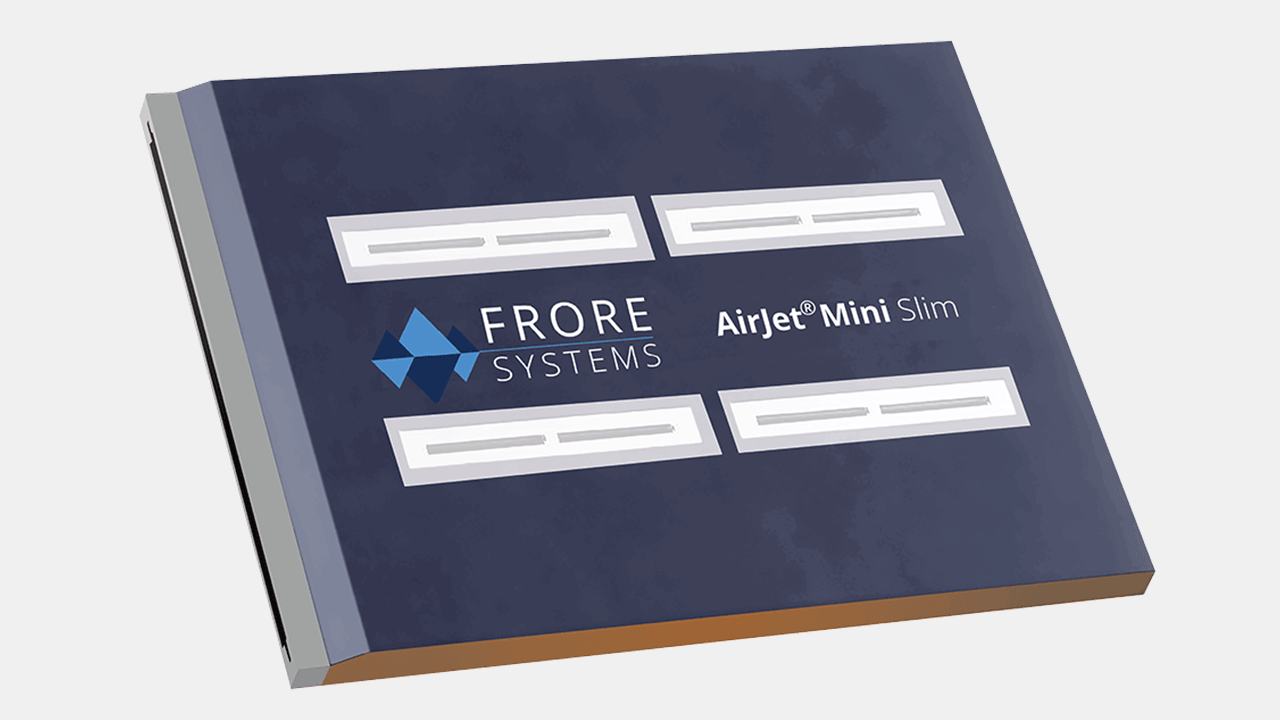
Frore Systems introduced the AirJet Mini Slim, an improved version of its renowned solid-state active cooling device, at CES 2024. The AirJet Mini Slim is a slimmer, lighter, and smarter iteration of the AirJet Mini introduced a year ago that can sense its temperature and clean itself.
Frore's AirJet Mini Slim maintains the same 27.5 x 41.5 mm footprint and boasts the same 1750 Pascals of back pressure and cooling capabilities as the AirJet Mini: it can dissipate up to 5.25W of power at 85 degrees Celsius die temperature and at 25 degrees Celsius ambient temperature. Meanwhile, the AirJet Mini Slim has two significant changes compared to its predecessor: it is 2.5mm thin (down from 2.8 mm) and weighs only 8 grams (down from 9 grams).
This new design is a better fit for devices that need to be portable and powerful simultaneously, like fanless laptops, tablets, handheld gaming devices, and SSDs. Furthermore, Frore also positions its cooling system for smartphones, though we would argue that smartphones have enough space even for a 2.5-mm cooling system inside.
"Reducing the chip's thickness by 0.3mm is a game-changer for products requiring excellent thermal management in increasingly thinner devices," said Dr. Seshu Madhavapeddy, Founder and CEO of Frore Systems. "AirJet Mini Slim will bring much-needed performance improvements to ultra-thin electronic devices like fanless laptops, tablets, and smartphones."
Another notable advancement in the AirJet Mini Slim is its intelligent Self-Cleaning system. The self-cleaning mechanism reverses the airflow to expel any dust gathered in the filters. This ensures the operation of the AirJet Mini Slim itself and that the device it is used in maintains its consistent performance. Interestingly, this feature seems to be firmware/software enabled, as it is said to be backward compatible with the AirJet Mini.
In addition, Frore's AirJet Mini Slim also introduces Thermoception capability, which enables the device to detect its temperature and adjust its cooling performance accordingly autonomously. This automated capability benefits devices that lack processors (or memory chips) with built-in temperature sensors or standalone temperature sensors, opening up new market opportunities for Frore. Meanwhile, it is unclear how Thermoception capability works with two or more AirJet Mini Slim devices working in tandem if one only adjusts its performance based on its temperature.
The demonstration of Frore's AirJet Mini Slim indicates that the product is ready, but it is hard to say when they are available in actual products.







